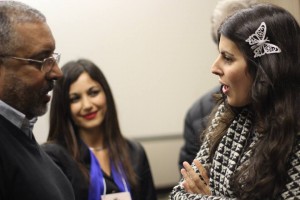My talk was based on the following claim: non-Internet use, be it involuntary or voluntary, can be a form of social inequality, when it excludes people from accessing a set of socio-economic benefits (e.g., online communication opportunities, online services, etc.) and excludes people from a social and public dimension of contemporary societies (e.g., online sociability and public participation, public services migrated to online-only, etc.). I mostly focused on my research with older adults (65+), although mentioning my work with young people as well. I also used quantitative and qualitative data from my doctoral research to show how social capital decreases with age, but how older adults that are daily Internet users are more likely to have higher levels of social capital when comparing to older moderate, light, and non-users. In addition, I addressed the main challenges faced by older adults in adopting and using the Internet, the importance of intergenerational relationships, and the crucial role of critical digital literacy to overcome some of the potential risks and concerns with the ‘online’ world.
I had a great time in Passo Fundo, and met the Brazilian senator Paulo Paim, who authored the Brazilian bill of rights of seniors, known as the “Elderly Statute”. Here is a picture of us:
I gave a few interviews as well. Here is an excerpt of one of my TV interviews; this was shot after my long trip to Brazil, so please forgive my tired-looking eyes (in Portuguese):
Thank you, University of Passo Fundo. A special thanks to Professor Adriano Pasqualotti, for inviting me and making me feel so welcome in Brazil. Muito obrigado!

